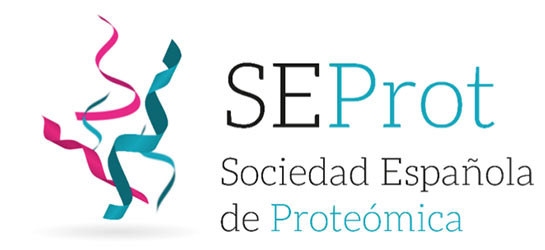Dysregulated protein phosphorylation: A determining condition in the continuum of brain aging and Alzheimer’s disease
Isidro Ferrer, Pol Andrés-Benito, Karina Ausín, Reinald Pamplona, José Antonio Del Rio, Joaquín Fernández-Irigoyen, Enrique Santamaría
Brain Pathology (2021); DOI: 10.1111/bpa.12996
Abstract:
Tau hyperphosphorylation is the first step of neurofibrillary tangle (NFT) formation. In the present study, samples of the entorhinal cortex (EC) and frontal cortex area 8 (FC) of cases with NFT pathology classified as stages I-II, III-IV, and V-VI without comorbidities, and of middle-aged (MA) individuals with no NFT pathology, were analyzed by conventional label-free and SWATH-MS (sequential window acquisition of all theoretical fragment ion spectra mass spectrometry) to assess the (phospho)proteomes. The total number of identified dysregulated phosphoproteins was 214 in the EC, 65 of which were dysregulated at the first stages (I-II) of NFT pathology; 167 phosphoproteins were dysregulated in the FC, 81 of them at stages I-II of NFT pathology. A large percentage of dysregulated phosphoproteins were identified in the two regions and at different stages of NFT progression. The main group of dysregulated phosphoproteins was made up of components of the membranes, cytoskeleton, synapses, proteins linked to membrane transport and ion channels, and kinases. The present results show abnormal phosphorylation of proteins at the first stages of NFT pathology in the elderly (in individuals clinically considered representative of normal aging) and sporadic Alzheimer’s disease (sAD). Dysregulated protein phosphorylation in the FC precedes the formation of NFTs and SPs. The most active period of dysregulated phosphorylation is at stages III-IV when a subpopulation of individuals might be clinically categorized as suffering from mild cognitive impairment which is a preceding determinant stage in the progression to dementia. Altered phosphorylation of selected proteins, carried out by activation of several kinases, may alter membrane and cytoskeletal functions, among them synaptic transmission and membrane/cytoskeleton signaling. Besides their implications in sAD, the present observations suggest a molecular substrate for «benign» cognitive deterioration in «normal» brain aging.
Enlace: DOI:10.1111/bpa.12996

